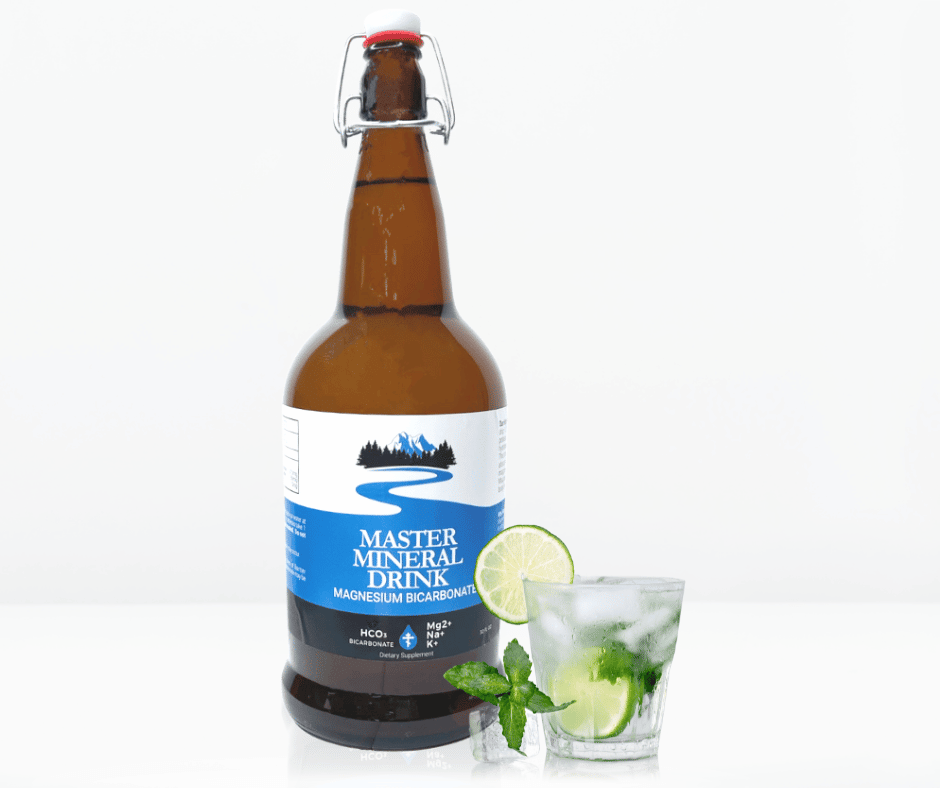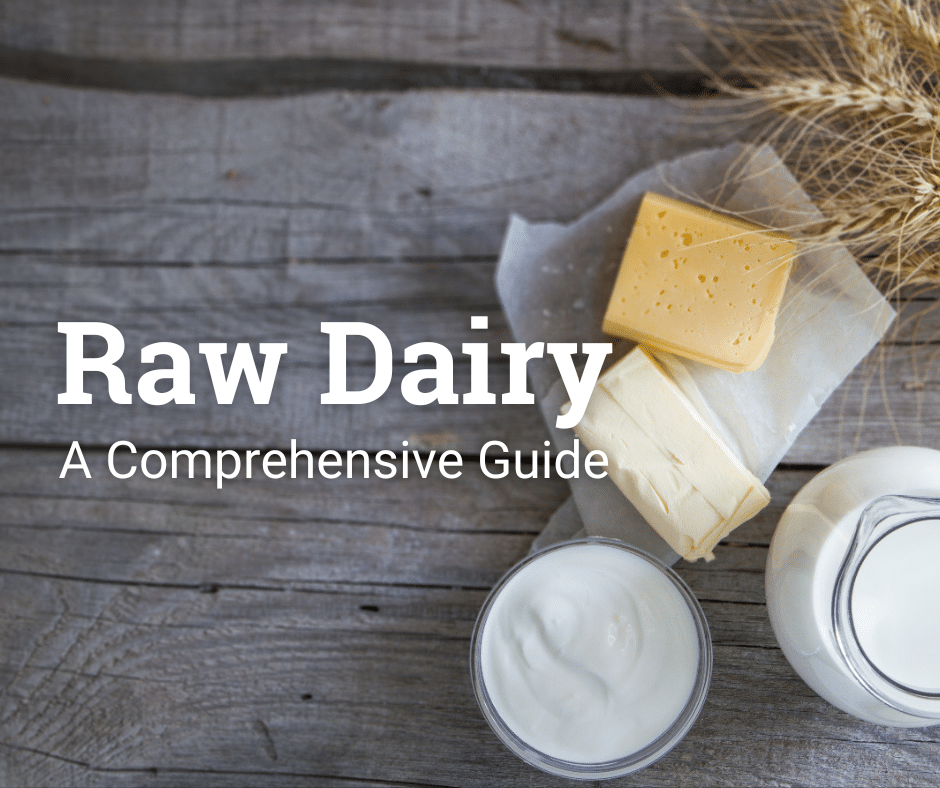Magnesium, sometimes known as the “master mineral,” plays an important role in over 300 enzyme systems and is essential for energy production, DNA synthesis, and nerve impulse conduction, among other functions; however, it can be difficult to absorb from food sources alone. Several different types of magnesium can be found in nature, including magnesium bicarbonate, magnesium chloride, magnesium glycinate, magnesium citrate, and magnesium L-threonate.¹ Our Master Mineral Drink is a dietary supplement containing magnesium bicarbonate, potassium bicarbonate, and sodium bicarbonate. It is a great source to support magnesium levels in the body.
Magnesium bicarbonate is the most effective form of magnesium for absorption and bioavailability. As such, taking magnesium bicarbonate may offer more immediate benefits than any other supplement form available today. The human body relies on the bicarbonate buffering system to neutralize acidic waste and maintain a strict pH balance. Under stress, bicarbonates become a limiting factor for neutralizing acidity in the body.² Drinking magnesium bicarbonate water helps reduce inflammation and detoxify toxic substances by maintaining balanced pH levels throughout the body’s cells.
Our Master Mineral Drink is an excellent supplement for magnesium bicarbonate, but there are some tips and tricks to make sure you get the most out of it. Taking magnesium bicarbonate in the right way ensures your body gets adequate magnesium levels to support healthy bodily functions.
To start, adults should begin with 1/2 ounce (1 TBSP) of our Master Mineral Drink daily. Make sure to consume it at least 30-60 minutes away from meals. It is important to note that if you take magnesium bicarbonate water along with food, the bicarbonates will be neutralized by the stomach acid produced when food is eaten, so they will have little therapeutic value.
If you need to adjust to the taste of your Master Mineral Drink, another great way to take magnesium bicarbonate is to mix it with raw milk, milkshakes, or in your adrenal cocktails (simple recipe below). For athletes or advanced users, up to 2 ounces daily can be taken. Children above the age of 2 or users who may be more sensitive to magnesium can try taking half or even a quarter of the regular dose. If in doubt, start at a low dose. Please consult your or your child’s healthcare practitioner before introducing any supplements.
The best time of day to take your dose of Master Mineral Drink is during an activity or movement session. Going on a walk, working out, sports, or any activity where you are moving and not just sitting works great in our opinion. Eating plenty of raw saturated fats throughout your day is an important catalyst for utilizing minerals and protein. Raw fats will help cleanse and protect the body by binding to toxic byproducts while removing them safely from our body. We recommend raw fats because fats heated above 104° Fahrenheit are rarely digested, assimilated, or utilized properly.³ Great sources of raw fat include coconut cream, fat in meat, unsalted raw cheeses, sour cream, raw dairy cream and full-fat milk, raw eggs, avocados, stone-pressed olive oil, and other non-vegetable cold-pressed-below 96° Fahrenheit oils.
Be sure to store your bottle of the Master Mineral Drink in the refrigerator after opening. For magnesium bicarbonate to remain active, it must be kept refrigerated (40-50°F).
Getting enough magnesium in your diet is important as this mineral plays a vital role in many metabolic processes throughout your body. Taking magnesium bicarbonate supplements can provide the following:
- Support for hundreds of chemical reactions in the body⁴
- Boost exercise performance⁵
- May decrease depression symptoms⁶
- Blood sugar levels, insulin sensitivity, and other risk factors for type 2 diabetes may be improved⁷
- Helps to lower blood pressure and reduce several heart disease risk factors⁸
- Assists in fighting inflammation by reducing inflammation markers such as CRP and INF-6⁹ ¹⁰
- May relieve migraines¹¹
- May relieve PMS symptoms¹²
- May reduce the risk of osteoporosis, fractures, and bone loss¹³
- Helps improve the quality of sleep and treat certain sleep issues¹⁴
- Helps reduce anxiety symptoms and stress¹⁵
Choosing the right supplementation type depends on your individual needs and goals. However, if you’re looking for a fast-acting way to boost your magnesium levels and build your magnesium stores, taking magnesium bicarbonate may be a great choice! Always remember that taking any supplement can have its benefits, but when done incorrectly, it can also have its dangers.
It’s important to speak with your doctor before adding any supplement to your diet – including magnesium – as there are potential risks associated with taking too much or too little of any nutrient. Consuming excessive magnesium bicarbonate water can lead to severe gastrointestinal issues such as diarrhea, cramps, and electrolyte irregularities. In extreme cases, it could even cause magnesium toxicity, which may be hazardous for your heart muscles. Therefore it is important to stay within the recommended daily dosage of this mineral-rich liquid. Your doctor or healthcare practitioner can help you find the right balance based on your needs!
Note: Bicarbonate may be contraindicated for people with the rare illnesses of Bartter syndrome or Gitelman syndrome.
Simple Adrenal Cocktail Recipe with our Master Mineral Drink:
Ingredients:
- 12 oz filtered or sparkling water (or coconut water if preferred)
- 1 lime
- 1/2 oz (1 tbsp) Master Mineral Drink
Optional flavor additions can be added to taste. Some of our favorites are a sprig of mint, a splash of cherry or cranberry juice, or a pinch of salt. Mix and enjoy cold.
References
- Research, Dr. Robert G. Silverman-Biotics. “Magnesium, the Master Mineral.” Blog.bioticsresearch.com, blog.bioticsresearch.com/magnesium-the-master-mineral.
- “Bicarbonates | Structure, Uses & Health Effects | Chemistry | Byju’s.” BYJUS, byjus.com/chemistry/bicarbonates/.
- Aajonus Vonderplanitz. We Want to Live. Santa Monica, Ca, Carnelian Bay Castle Press, 1997.
- de Baaij, Jeroen H F, et al. “Magnesium in Man: Implications for Health and Disease.” Physiological Reviews, vol. 95, no. 1, 2015, pp. 1–46, www.ncbi.nlm.nih.gov/pubmed/25540137, https://doi.org/10.1152/physrev.00012.2014.
- Wang, Ru, et al. “The Effect of Magnesium Supplementation on Muscle Fitness: A Meta-Analysis and Systematic Review.” Magnesium Research, vol. 30, no. 4, Oct. 2017, pp. 120–132, https://doi.org/10.1684/mrh.2018.0430.
- Tarleton, Emily K., et al. “Role of Magnesium Supplementation in the Treatment of Depression: A Randomized Clinical Trial.” PLOS ONE, vol. 12, no. 6, 27 June 2017, p. e0180067, https://doi.org/10.1371/journal.pone.0180067.
- Fang, Xin, et al. “Dose-Response Relationship between Dietary Magnesium Intake and Risk of Type 2 Diabetes Mellitus: A Systematic Review and Meta-Regression Analysis of Prospective Cohort Studies.” Nutrients, vol. 8, no. 11, 19 Nov. 2016, p. 739, https://doi.org/10.3390/nu8110739. Accessed 5 June 2019.
- Zhang, Xi, et al. “Effects of Magnesium Supplementation on Blood Pressure.” Hypertension, vol. 68, no. 2, Aug. 2016, pp. 324–333, https://doi.org/10.1161/hypertensionaha.116.07664.
- Mazidi, Mohsen, et al. “Effect of Magnesium Supplements on Serum C-Reactive Protein: A Systematic Review and Meta-Analysis.” Archives of Medical Science, vol. 14, no. 4, 2018, pp. 707–716, https://doi.org/10.5114/aoms.2018.75719. Accessed 12 Jan. 2020.
- Simental-Mendia, Luis E., et al. “Effect of Magnesium Supplementation on Plasma C-Reactive Protein Concentrations: A Systematic Review and Meta-Analysis of Randomized Controlled Trials.” Current Pharmaceutical Design, vol. 23, no. 31, 4 Dec. 2017, https://doi.org/10.2174/1381612823666170525153605.
- Shahrami, Ali, et al. “Comparison of Therapeutic Effects of Magnesium Sulfate vs. Dexamethasone/Metoclopramide on Alleviating Acute Migraine Headache.” The Journal of Emergency Medicine, vol. 48, no. 1, Jan. 2015, pp. 69–76, www.sciencedirect.com/science/article/abs/pii/S0736467914007574, https://doi.org/10.1016/j.jemermed.2014.06.055. Accessed 26 Dec. 2019.
- Parazzini, Fabio, et al. “Magnesium in the Gynecological Practice: A Literature Review.” Magnesium Research, vol. 30, no. 1, 1 Feb. 2017, pp. 1–7, pubmed.ncbi.nlm.nih.gov/28392498, https://doi.org/10.1684/mrh.2017.0419.
- Groenendijk, Inge, et al. “Impact of Magnesium on Bone Health in Older Adults: A Systematic Review and Meta-Analysis.” Bone, vol. 154, 1 Jan. 2022, p. 116233, www.sciencedirect.com/science/article/pii/S8756328221003999, https://doi.org/10.1016/j.bone.2021.116233. Accessed 30 Oct. 2021.
- Zhang, Yijia, et al. “Association of Magnesium Intake with Sleep Duration and Sleep Quality: Findings from the CARDIA Study.” Sleep, 20 Nov. 2021, p. zsab276, pubmed.ncbi.nlm.nih.gov/34883514/, https://doi.org/10.1093/sleep/zsab276.
- Anjom-Shoae, Javad, et al. “The Association between Dietary Intake of Magnesium and Psychiatric Disorders among Iranian Adults: A Cross-Sectional Study.” British Journal of Nutrition, vol. 120, no. 6, 2 Aug. 2018, pp. 693–702, https://doi.org/10.1017/s0007114518001782.






0 Comments